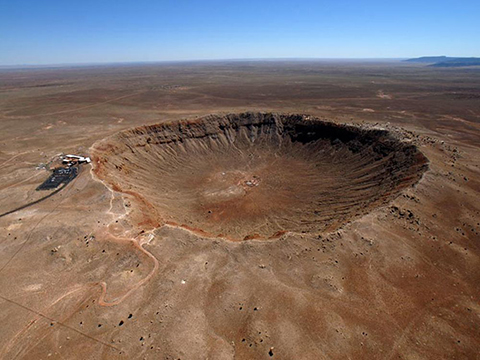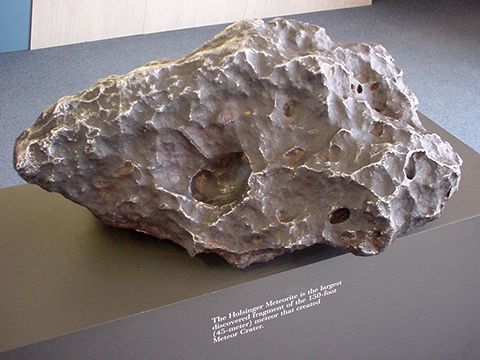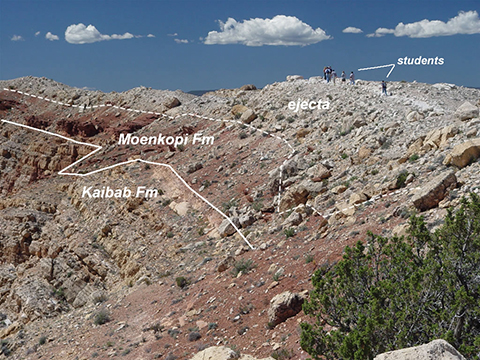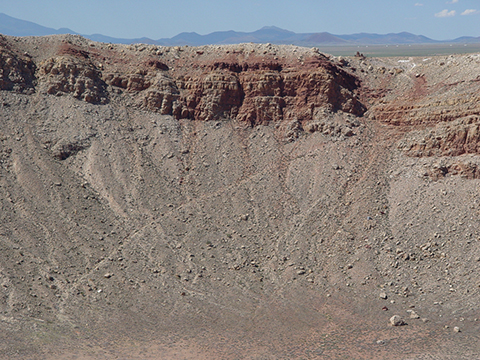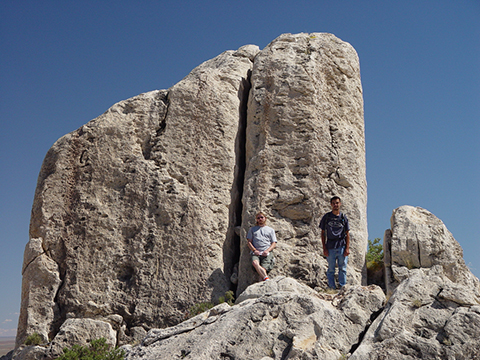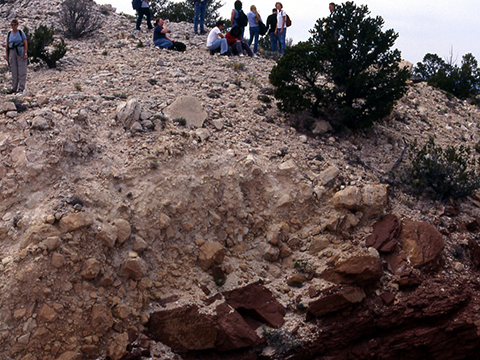Part D
"Meteor" Crater
Now it's time to take a closer look at Earth's most well-known and best preserved impact crater: Meteor Crater (shouldn't it have been more accurately named "Meteorite" Crater?). There is a wealth of information available online about Meteor Crater, and it represents one of the most studied impact structures in our Solar System. Located about 3 hours north of Phoenix, you can see if for yourself, as it's open to the public (with an admission fee).
|
Figure 5-7. Arizona's own meteorite impact site. At left, Barringer Meteorite Crater (a.k.a. Meteor Crater) is located in northern Arizona between Winslow and Flagstaff. At right, the Holsinger meteorite is the largest of the Canyon Diablo meteorites, which represent the remants of the original asteroid-sized impactor. |
|
Now, refer to The Barringer Meteorite Crater web page. There are some cool areas to explore in this web site, but you can answer the following questions by clicking on the "The Crater" link in the menu at the top of the page and reading through that page.
![]()
![]()
![]()
![]()
![]()
![]()
|
|
|
Figure 5-8. A panorama of Meteor Crater. The view is to the south from the north rim of the crater. |
|
Figure 5-9. Hiking the rim at Meteor Crater. At upper left, students walk the trail west of the museum. At upper right, a trail on the western side of the crater leads to the crater floor. At lower right, the light-colored ejecta overlies the reddish Moenkopi along the southern part of the rim. At lower left, Kurt and Humberto provide scale for the house-sized block of Coconino Sandstone ejecta on the eastern rim. |
|
After finishing this lesson, complete the form below:
